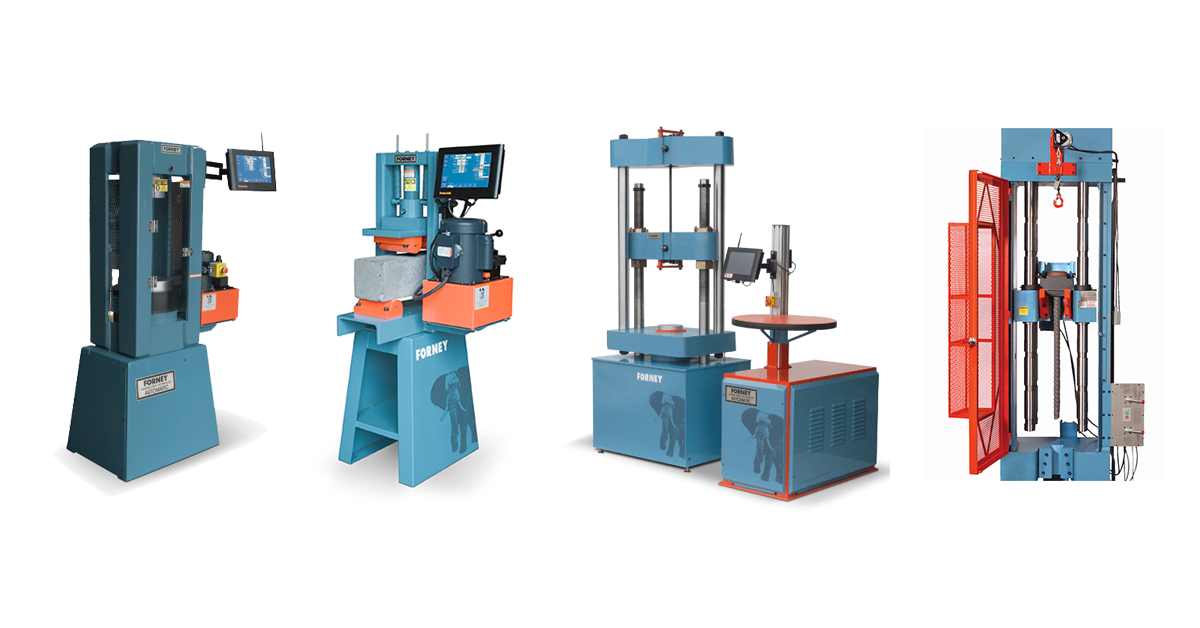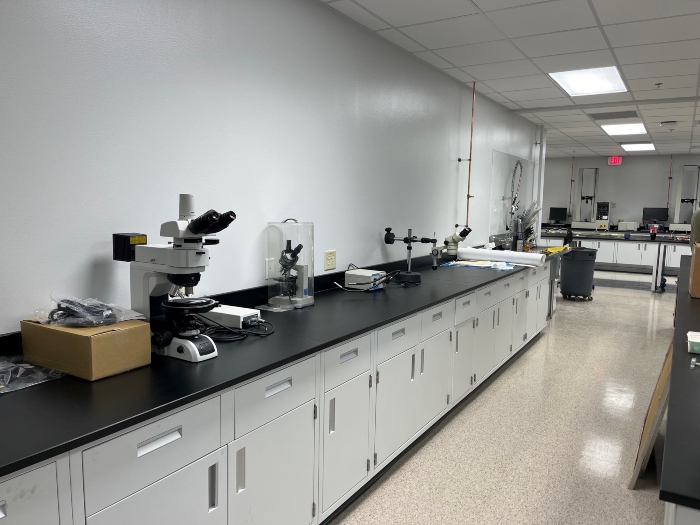Professional Materials Test Lab for Industry-Leading High Quality Specifications
Wiki Article
Precision Testing of Materials for Toughness and Resilience
Precision screening of products for strength and longevity plays an essential role in numerous industries, including production, engineering, and construction. This procedure involves subjecting different materials to strenuous analyses to establish their capacity to withstand exterior forces and preserve their stability gradually.On the planet of materials testing, precision is critical. Engineers and scientists rely upon reputable and exact information to make enlightened choices concerning product option, layout optimization, and product efficiency. By making use of innovative screening methods and state-of-the-art tools, specialists can evaluate the strength and sturdiness of a vast array of products, such as steels, composites, polymers, and ceramics.
This introduction will certainly give insights into the significance of precision screening, the types of materials frequently subjected to screening, the vital parameters for toughness analysis, and the methods utilized for durability assessment. It will certainly also highlight the applications and benefits of performing accuracy testing in different industries.
Importance of Accuracy Testing
Precision testing is a vital action in examining the toughness and longevity of materials, supplying accurate and reputable data for educated decision-making. The top quality and performance of products play an essential duty in ensuring the safety and security and durability of items and structures when it comes to manufacturing and construction markets. For that reason, performing accuracy testing is of utmost significance to figure out whether the products meet the called for requirements and requirements.By subjecting products to strenuous screening designers, suppliers and treatments can analyze their mechanical buildings, such as tensile strength, hardness, and influence resistance. This information enables them to guarantee that the materials can endure employed pressures and ecological conditions without failing or degradation over time. Additionally, accuracy testing helps recognize any kind of possible flaws or weaknesses in the products, making it possible for manufacturers to make essential enhancements or adjustments to enhance efficiency and dependability.
Moreover, accuracy testing offers measurable and unbiased data that can be used to make and contrast various materials informed choices concerning their viability for particular applications. When selecting products for essential parts or frameworks where failure might have serious repercussions., this information is specifically useful.
Kinds of Products Subjected to Evaluating
Different products are subjected to testing for toughness and sturdiness. This testing is vital to ensure that the materials can endure the needs of their designated applications and to determine their expected lifespan. The kinds of products based on screening vary and include steels, polymers, porcelains, compounds, and building products.Metals, such as steel and aluminum, are generally checked for their tensile strength, firmness, and resistance to rust. materials test lab. These tests help identify their viability for usage in structural applications, machinery, and numerous commercial processes

Ceramic products, such as porcelain and ceramic floor tiles, are evaluated for their compressive toughness, warmth resistance, and durability. These examinations make sure that ceramics can withstand severe atmospheres and high temperatures, making them suitable for applications in the building and construction, electrical, and aerospace sectors.
Composites, which are products made from a mix of various components, are subjected to numerous tests to analyze their mechanical homes, such as strength, effect, and tightness resistance. Composite materials are extensively utilized in markets such as aerospace, vehicle, and sports devices manufacturing.
Building and construction materials, consisting of concrete, asphalt, and timber, undergo testing to identify their load-bearing ability, longevity, and resistance to weathering. These tests are crucial in guaranteeing the safety and security and longevity of roads, bridges, and structures.
Trick Parameters for Stamina Analysis
Materials subjected to testing for stamina and durability should be assessed based upon vital parameters that accurately analyze their capability to stand up to environmental conditions and external forces. These specifications play an essential function in figuring out the overall performance and reliability of a product. Among the essential parameters for strength evaluation is the tensile strength, which measures a material's ability to resist drawing pressures without flawing or damaging. One more vital criterion is the compressive toughness, which examines a material's resistance to being or squashing pressed together. Additionally, the flexural strength is considerable, as it evaluates a material's capacity to stand up to flexing or turning pressures. Moreover, the impact toughness is critical in examining a material's resistance to sudden, dynamic forces. Other parameters that contribute to stamina evaluation consist of shear toughness, tiredness strength, and firmness. Shear strength basics gauges a material's capacity to withstand pressures that trigger moving or abusing. Fatigue toughness assesses a product's resistance to duplicated loading and unloading cycles. Firmness is essential as it determines a material's resistance to indentation or abrasion. By examining these key parameters, engineers and scientists can properly evaluate the toughness and sturdiness of materials, enabling them her comment is here to make educated choices in various markets such as aerospace, automobile, building and construction, and manufacturing.

Methods for Longevity Analysis
Durability evaluation methods are important for evaluating the long-lasting performance and reliability of products. These methods are essential in establishing the capability of products to stand up to various ecological conditions and mechanical stresses over prolonged amount of times. One typically made use of technique is increased aging, which includes subjecting products to accelerated environmental problems such as heats, humidity, and UV radiation. This permits researchers to replicate the results of long-lasting direct exposure in a shorter period, allowing them to evaluate product degradation and anticipate its efficiency with time.Another technique is cyclic screening, which entails subjecting materials to repeated loading and dumping cycles. This aids evaluate the material's fatigue resistance and its capacity to withstand repeated stress without failure. By analyzing the stress-strain reaction of the material during cyclic testing, researchers can identify prospective powerlessness and examine the material's toughness.
Additionally, non-destructive screening strategies such as ultrasonic testing and infrared thermography can be used to examine the inner integrity and identify any type of problems or damages in the product. These strategies provide important info concerning the material's longevity without creating any type of damages to it.
Applications and Advantages of Precision Screening
Accuracy testing plays an important role in assessing the strength and toughness of materials, making it possible for researchers and engineers to obtain precise and trustworthy data for assessing their efficiency. The applications of accuracy screening are comprehensive and can be located across different industries, consisting of aerospace, automotive, building and construction, and manufacturing.Among the essential advantages of precision testing is its capacity to recognize potential weaknesses or imperfections in products. By subjecting products to controlled and extensive testing, any kind of issues or susceptabilities can be detected prior to they bring about disastrous failures. This allows makers to make essential renovations or adjustments to improve the overall quality and longevity of their items.
Precision testing additionally aids in figuring out the optimum style and composition of materials. By examining various variants and arrangements, designers can determine one of the most ideal products for specific applications. This causes improved effectiveness, performance, and cost-effectiveness in various sectors.
Furthermore, precision testing supplies valuable data for the growth and improvement of materials and producing processes. materials test lab. It enables researchers to get a deeper understanding of product actions under various problems, leading to the development of new products with boosted strength, longevity, and efficiency attributes
Verdict
To conclude, accuracy testing plays a crucial duty in reviewing the strength and toughness of materials. By subjecting numerous sorts of products to strenuous screening, vital parameters for toughness examination can be recognized. In addition, methods for resilience assessment offer beneficial insights right into the efficiency and life expectancy of materials. This understanding allows sectors to make informed choices and ensures the growth of reputable and durable items.Accuracy screening is a crucial step in examining the stamina and durability of materials, supplying accurate and trustworthy data for educated decision-making.Various products are subjected to screening for toughness and toughness. The kinds of products subjected to screening are varied and include metals, polymers, porcelains, compounds, and building and construction products.
By assessing the stress-strain feedback of the material throughout cyclic screening, scientists can identify possible weak points and evaluate the material's durability.
In conclusion, precision screening plays an important duty in reviewing the strength and durability of find here materials.
Report this wiki page